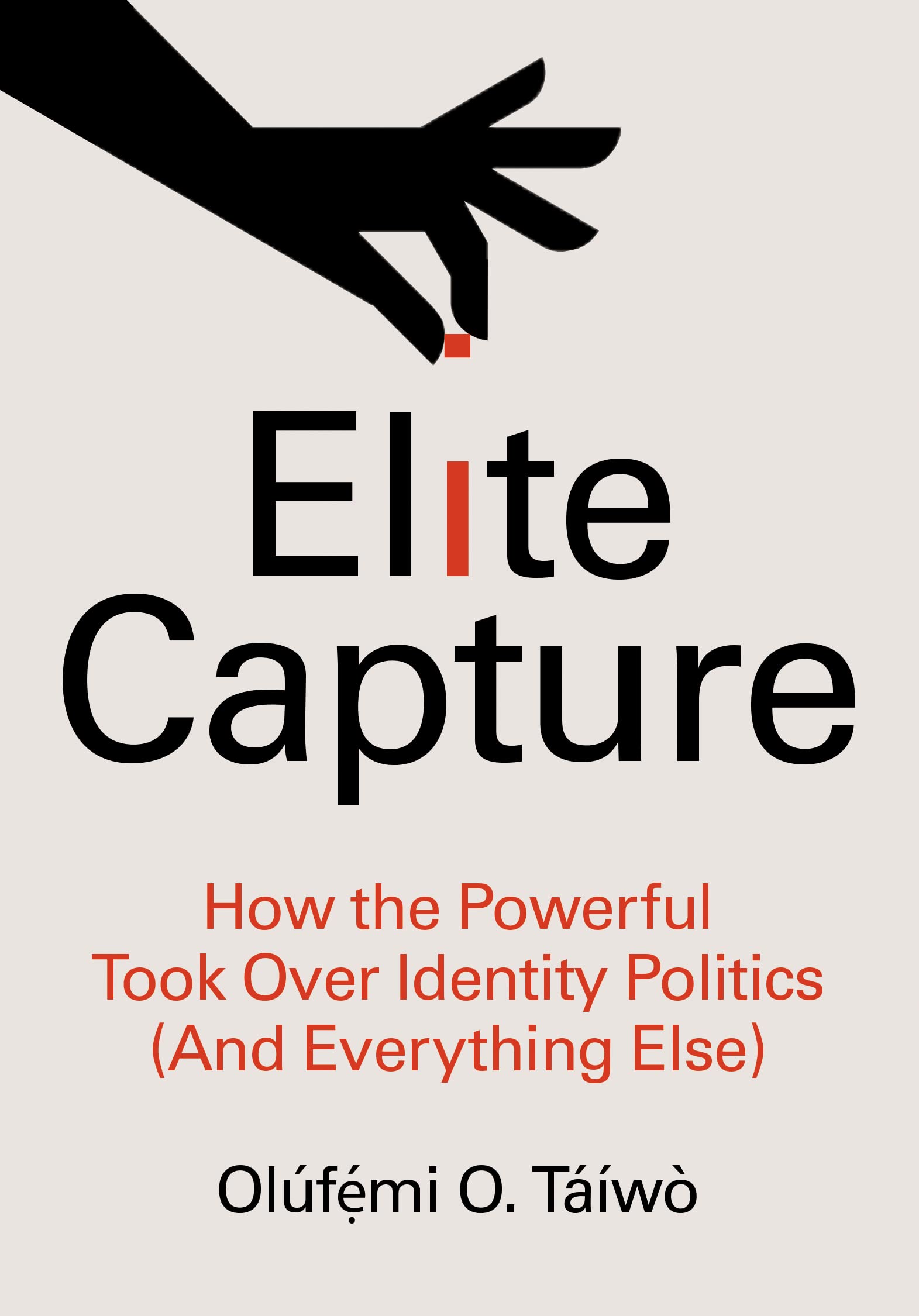
Elite Capture: How the Powerful Took Over Identity Politics
Olúfẹ́mi O. Táíwò
About the Author

Olúfẹ́mi O. Táíwò
Questions & Answers
"Elite Capture" refers to the control or manipulation of resources, information, and power by a small, socially advantaged group, often for their own benefit. It manifests in various aspects of society:
- Education: Elites can control the narrative and content taught, shaping common knowledge and understanding.
- Media: Elites can influence what information is disseminated, shaping public opinion and discourse.
- Economic Systems: Elites can manipulate markets and regulations to their advantage, leading to wealth concentration.
- Political Processes: Elites can influence policies and governance to maintain their power and interests.
- Social Dynamics: Elites can control social norms and values, shaping societal expectations and behavior.
Elite Capture often goes unnoticed because it operates within existing structures, making it difficult to challenge or change.
The concept of "Elite Capture" relates to identity politics by highlighting how political movements, including Black Lives Matter, can be co-opted by those in power for their own interests. Elite Capture occurs when socially advantaged individuals or groups control resources and institutions meant for the many, steering them toward their own narrow interests. In the context of identity politics, this can manifest as the hijacking of movements like Black Lives Matter by elites who use them for symbolic gestures without enacting substantial change. This co-optation can dilute the original goals of the movement, which were often centered around addressing systemic issues and promoting genuine solidarity across different marginalized groups. Elite Capture, therefore, underscores the importance of recognizing and resisting attempts to appropriate and distort identity politics for the benefit of the powerful, emphasizing the need for movements to remain grassroots-driven and focused on transformative change.
"Elite Capture" refers to the control of resources and institutions by a small, powerful group for their own benefit, often at the expense of the majority. This phenomenon has significant implications for democracy and social justice:
Implications:
- Weakened Representation: Elite capture dilutes the power of democratic institutions, as decisions are made by a select few rather than the broader population.
- Inequality: It exacerbates social and economic disparities, as the elite can manipulate systems to their advantage.
- Corruption: It fosters corruption, as the elite can use their power to enrich themselves at the expense of the public.
Challenges and Solutions:
- Transparency and Accountability: Implementing transparent policies and holding leaders accountable can help mitigate elite capture.
- Empowerment: Empowering marginalized groups through education, economic opportunities, and political participation can challenge elite dominance.
- Coalition Building: Forming alliances across diverse groups can amplify the voice of the many against the few.
- Constructive Politics: Focusing on building institutions and practices that promote equity and justice can counteract elite capture.
The "Constructive Approach" to politics, as proposed by Olúfmi O. Táíwò, counters elite capture by focusing on building and rebuilding institutions and practices that directly address social injustices. This approach emphasizes specific goals and outcomes over symbolic gestures, focusing on redistributing social resources and power. It encourages building coalitions and institutions that empower marginalized groups, like labor unions and debtors' unions, and promotes democratic participation in decision-making processes. By emphasizing direct action and systemic change, the Constructive Approach seeks to dismantle the structures that enable elite capture and create a more equitable society.
Elite capture, the control of resources and institutions by a few for their own benefit, has deep historical roots and remains relevant today. Historically, it's evident in the Black Bourgeoisie, where a small group of Black entrepreneurs was co-opted by white elites, and in the myth of the Black economy-to-freedom pipeline, which obscured the real interests of a few. Contemporary examples include the Flint water crisis, where residents were ignored by authorities, and the capture of Black studies by administrators, reducing its democratic potential. Elite capture also manifests in the tech industry, where platforms like Uber and Lyft manipulate workers' values, and in the political realm, where laws are written by corporate interests. These examples illustrate elite capture's pervasive nature across various contexts, from local activism to global economics.